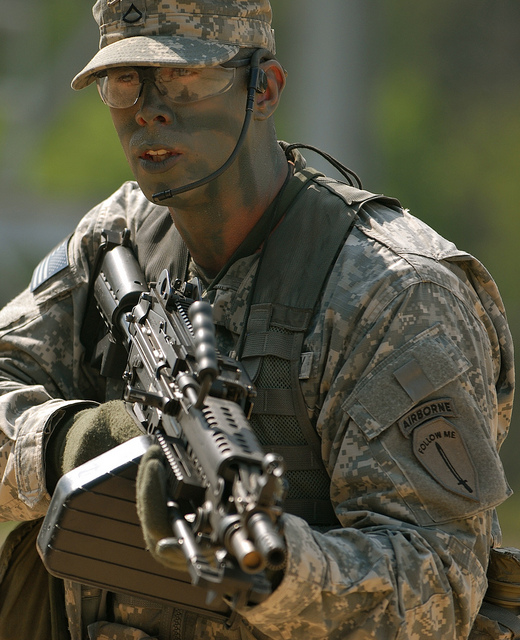The main stated aim of the US deployment of 100 military advisers to central Africa is to improve coordination among the armies of countries affected by the Lord’s Resistance Army (LRA) to avoid repeating the fiasco of the 2008 multinational offensive against the group.
They “are not directly involved in the operation to find members of the Lord's Resistance Army”, said Major James Rawlinson of the US Special Operations Command, Africa, in a statement to IRIN. While they will be “working and living closely with African security forces”, the focus is “on enabling their ability to better conduct command and control, planning and coordination”.
In testimony before the US Congress in October, Alexander Vershbow, Assistant Secretary of Defense for International Security Affairs, said “the bulk” of the 100 advisers would be based in Uganda but “small teams would deploy forward in partnership with local forces, to help them improve their skills on the front-lines”.
They will carry small-arms weapons only for self-defence, he said. Vershbow would not describe the weapons for the Congressional panel.
The main goal, both said, is to help the militaries of Uganda, South Sudan, Democratic Republic of Congo (DRC) and Central African Republic (CAR) share intelligence, which would allow for prompt and concerted action against the LRA.
The failure of Operation Lightning Thunder in 2008 against an LRA camp by Uganda, the DRC and South Sudan, was blamed on poor coordination among the combatant forces and a lack of operational secrecy. Seventeen US military advisers provided support for the operation.
In its immediate aftermath, LRA units went on the rampage, killing hundreds of civilians and forcing tens of thousands to flee their homes.
At present, 440,000 civilians in the region are displaced, most in DRC, because of LRA activities, according to the UN Office for the Coordination of Humanitarian Affairs.
“Our intention is to supplement host nation military efforts with advice and assistance that maximizes the flow of information to, and synchronizes the activities of host nation units in the field,” said Rawlinson.
Vershbow said he hoped “fusing the intelligence information with the operational plans” would lead to the elimination of “the remaining leadership of the LRA".
Raising questions
Congressman Brad Sherman, a Democrat from California, criticized Vershbow for being “vague” about the US operations. In comments to CNN, Senator John McCain, a Republican from Arizona, echoed those sentiments: “The LRA is one of the most atrocious and barbaric organizations in history and I applaud the goal, but I would like to know more.”
Richard Downie, a fellow and deputy director of the Africa Programme at the Center for Strategic and International Studies in Washington DC, cautioned that the increased US involvement did not guarantee the LRA’s days were numbered.
“I think you do have to be a little bit cautious in your expectations,” he said. “The difficult thing here is ultimately the responsibility is going to lie with the militaries on the ground.”
Ashley Benner, a policy analyst for the Enough Project, a Washington-based NGO that advocated for the US mission, worried that only sending advisers “will not make enough of an impact and, when the desired results are not seen, will likely lead to their premature withdrawal”.
She called on the Obama administration to urge African countries to improve their special forces, convince European countries to provide logistical assistance, defuse tensions between regional governments, and ensure the protection of civilians.
“The advisers should be tasked with helping to develop and coordinate a targeted apprehension strategy and improve US oversight of mission planning and execution,” she said. “Only then do we have a real chance of finally apprehending Joseph Kony and his senior commanders and bringing them to justice.”
For more, visit IRIN's in-depth: On the trail of the LRA
pd/am/mw
This article was produced by IRIN News while it was part of the United Nations Office for the Coordination of Humanitarian Affairs. Please send queries on copyright or liability to the UN. For more information: https://shop.un.org/rights-permissions





